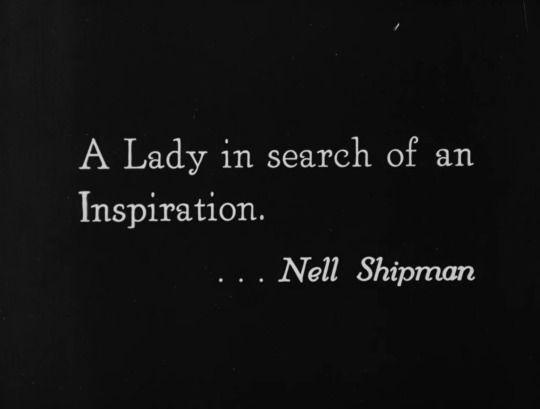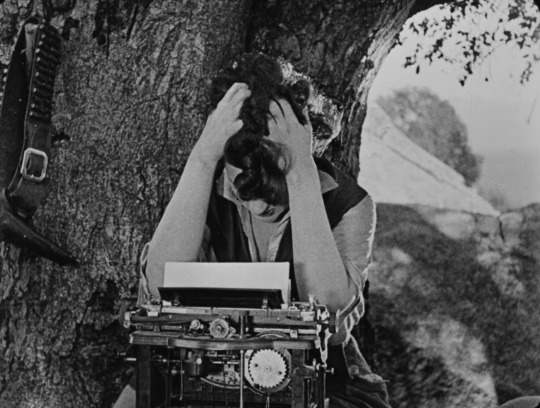I'm May, and this is just a place for me to talk and post a little writing, mostly reviews at the moment, but more if I ever manage to finish anything. This is a sideblog.
Last active 3 hours ago
Don't wanna be here? Send us removal request.
Text
I love trying to look up the lyrics for a song and instead having the Genius website make my phone hot while it loads five ads and autoplays a video of Oop Slurp explaining the meaning behind his song She Fuck Me Like I’m Dr Phil
31K notes
·
View notes
Text
You'll never fuck a weird bitch if you have no whimsy
10K notes
·
View notes
Text
I wasn't expecting to like The Hills Have Eyes cause Last House on the Left just made me frustrated but it was much better than I was expecting, esp compared to the remake, which was literally horrid? I'm shocked to find so many people think it's better. The movie from *the 70s* had a more tasteful rape scene, as far as these things go, and the re-make has what? Killing a guy with an american flag?
At the end of the original synthesis is required and acknowledged. Our "perfect American family" must become the backwoods family (at least in part) to defeat them, and by adopting Ruby Craven indicates they must integrate to survive further.
That's why Rubys' death seems so terrifically cruel in the remake. We can't have some mutant child mucking up the perfect American family. Indeed, the family must be restored (in as close to its original form as possible) to serve the ideology if its makers. In fact, the parallels (both groups being sort of 'nuclear families' with some sort of traditional gender roles in place) are removed, because the main family can't have any parallels with the villains in the remake.
Anyway, I have too many thoughts but mostly wtf 2000s horror? Why were you like this
#rape tw#movies#thoughts#my writing#the hills have eyes#horror#idk the reamke just annoys me#not to dunk on all 2000s horror though#i like the descent
1 note
·
View note
Text
Imagine if you locked Light and Patrick Bateman in a room together. They would be having the most generic conversation but you wouldn’t be able to hear it over the sound of their overlapping internal monologues. There would be a few seconds where their monologues both play in sync to say something misogynistic.
91K notes
·
View notes
Text
The Demolished Man
This is the first novel to ever win a Hugo award, and the awards were of course very disorganized at the time. This was also the only novel ‘nominated’ that year, aka: it won before any formal list of nominees was announced. It had a lot of what I’ve come to expect from 50s sci-fi, and pulpy detective novels as it is at it’s core a very noir-like murder mystery.
The Overview (Spoilers from here on out!):
So The Demolished Man is about a rich man, named Ben Reich, who owns the second largest transport company in the galaxy, Monarch. His biggest competition is a man called Mr. D’Courtnay, who runs his own transport company that’s putting Ben out of Business. Ben offers him a merger, which D’Courtenay refuses, causing Ben to put into action his plan to murder D’Courtenay. There’s just one problem: Ben lives in the 24th Century where telepaths are ubiquitous, and many of them are on the police force. Called ‘peepers’ in the novel, their existence has prevented any per-meditated murders from taking place for years. The first part of the novel, then, is Ben coming up with clever ways to hide his intentions so he won’t be caught before the murder is committed. He succeeds in this through using his extensive contacts and monetary resources, along with getting a song stuck in his head so it’s hard for telepaths to read him. However, after the act is committed telepathic police detective Lincoln Powell discovers his guilt and tries to prove it to the non-telepathic populace beyond a shadow of a doubt.
The Details:
The world is pretty interesting, when it’s features are actually laid out. For instance, the non-telepath that Powell actually has to prove Ben is guilty to is not a person, but a computer. He has to plug his evidence into a machine known as ‘old man Mose’, who will tell them he probability of a conviction, which will then allow them to pursue a court case.
This also leads to he unravelling of the novel’s big plot twist. The computer claims Ben’s motive for murder would be a crime of passion, but the detectives, confused, insist it isn’t. However, Ben and D’Courtenay were speaking in code when Ben received his rejection, and eventually we find out that D’Courtenay actually approved Ben’s merger. So, then mystery then becomes why did Ben really kill D’Courtenay? And this is where the psychology really kicks in 9crime of passion, remember). You see, Ben has been having dreams of a faceless man chasing him. He’s terrified of these dreams, and claims he doesn’t know what they mean but they are, of course, the reason he kills D’Courtenay (who is, of course, the being the man with no face represents). It is revealed that D’Courtenay is Ben’s father, and Ben, the child of an affair, resents D’Courtenay, for abandoning him and his mother (though he gives them enough money to set them up for life). D’Courtenay accepts Ben’s merger because he wanted to make amends, but Ben was so resentful he intentionally, psychologically, convinced himself that D’Courtenay rejected his business proposal, and that he killed him for it.
This twist is executed, in my opinion rather messily, as the section of the book it takes place in is long after we’ve almost entirely stopped following Ben as a pov character, and basically entirely switched to Powell, so I hardly remembered the whole Man With No Face thing by the time it came up again in the big finale. Still, it’s fun a pulpy sort of way to follow all the twists and turns, so I mostly forgive the imperfection.
The other interesting bit of world building is the way the telepaths are integrated (or not so integrated) into society. This book seems to me to be a pretty clear inspiration for later works, like Psi-Core in Babylon Five, and even the telepathic gang in Scanners. Basically, the telepaths are simultaneously a sort of under-class, often discriminated against by the non-telepathic population who fear and are suspicious of them, while also having a lot of influence and power in political spaces like the police force and Ben Reich’s company, because they are of course very useful to the powers that be. They also have their own ruling body with rules and regulations that telepaths have to follow on pain of being exiled, much like B5’s psi-core.
We meet one banished telepath (who in fact got banished for doing an illegal job for Ben Reich), and see how he hangs around telepath parties he’s not invited to, just to get a taste of the mind to mind communication that he’s now missing out on. It’s an interesting punishment that they consider worse than death, and once again adds some interesting depth to the worldbuilding.
The really, really bad:
Unfortunately, in spite of the fun I had, this novel was written by a man in the 50s, and there is one big plot point that will not let you for get that. You see, there was one witness to D’Coutenay’s murder that throws a wrench in Ben Reich’s plans – his daughter Barbara (later revealed to be Reich’s sister). She is so traumatized by witnessing the murder that she goes completely catatonic, and the therapy they give her regresses her to childhood so that she can ‘grow up’ with the trauma and learn to accept it. Now, this has it’s own weird implications, but in a vacuum it’s not necessarily awful, the ‘awful’ part is that in this regressed state Powell falls in love with her.
Yeah.
Technically she is a grown woman, and they try to mitigate this weirdness by having Powell enter her mind and have interactions with her subconscious, but it can only help so much when in the real world as we see it she’s literally crawling around like a baby and treating Powell like her father. Mary Noyes, a character who seems to be Powell’s maid that’s hopelessly in love with him, even says to Powell at one point:
“How much of her are you in love with? One tenth? What part of her are you in love with? Her face? Her subconscious? What about the other ninety percent?”
And we are fully supposed to take this as the jealous ramblings of a woman scorned. Barbara and Powell get engaged at the end of the novel (thankfully once she’s reached the adult stage of her therapy). Mary is just ‘wrong’ here by the logic of the novel, even though by every other logic she’s completely right, but we’re supposed to be on the side of the love at first thing, in spite of Mary’s legitimately pointed questions.
Ultimatum
I must admit the novel didn’t blow me away, but it was fun read, and I love a detective novel, so in spite it’s one big yucky flaw I consider it fun. The problem of how to commit a murder in a society full of telepaths was really interesting, and there were some genuinely creative ways to prevent psychic listening in (the getting the song stuck in his head was both funny and interesting for me). Plus, the worldbuilding was clearly influential in some ways I wasn’t expecting, I almost wish they spent more time on that as well.
As an interesting supplementary note: Brian DePalma has apparently always wanted to make a movie of this that never really materialized, and... well.. he’s still alive so I hope he maybe still gets to. In spite of the book’s problems I think that would be really cool, and maybe he could fix some issues.
0 notes
Photo




Something New, 1920 (dir. Nell Shipman, Bert Van Tuyle)
187 notes
·
View notes
Text
So this year I've decided I want to read every book that's ever won a Hugo award. In order. I'm a sci-fi fan so many of these will be rereads for me, but I'm hoping to get an overview of the science fiction climate throughout the years, and put those books I've already read in context.
I'm very afraid of the period where Heinlein won like three years in a row.
Anyway, that's another thing I'm going to try and keep track of on this blog this year, so keep an eye out, or avoid me as your interest stands. I've finished the first one, The Demolished Man, so I'll be writing about that soon.
1 note
·
View note
Text


Instructions for how to download a Youtube video using VLC on Reddit
Instructions for how to navigate the underworld on an Orphic gold tablet
51K notes
·
View notes
Text
Looking back at the History of Sci Fi Channel,they used to have some cool marathons hosted by cool celebs
@the-blue-fairie @amalthea9 @ariel-seagull-wings @countesspetofi
@theancientvaleofsoulmaking @themousefromfantasyland
@filmcityworld1 @florals-cardigan @princesssarisa
35 notes
·
View notes
Text
ursula k le guin: if confronted directly with the knowledge that society requires suffering to be maintained, would you be capable or willing to abandon the structure and safety for uncertainty, strife, deprivation?
strange and inscrutable people who claim to know how to read: i would simply solve the problem
11K notes
·
View notes
Text
Most underrated trope is an immortal falling for an mortal, and the immortal stays at the mortals side, while they get older and older. So at one point there is a 90 year old woman being on a date with guy who looks like 25 but is actually 300 years old.
I don't know a single media who did that.
#what we do in the shadows does have a gag about this at the end#where they show an 80 year old woman with the 30ish year old looking vampire#but you're right that this is not played with enough!
57 notes
·
View notes
Text

digital painting of James Spader looking extremely distressed like he's afraid he will throw up soon...and gorgeous !!!
requested by @lustfulbaronet
38 notes
·
View notes
Text
When I was a kid I read a ton of books that were definitely not appropriate for my age. One of two things would happen:
I was too inexperienced to understand what I was reading, and it had no effect on me.
I understood what I was reading, and I leveled up.
21K notes
·
View notes
Text
Director's commentary bonus feature that periodically pops up a choice of what to "ask" the director to talk about next, and as it goes along it very gradually becomes apparent that you're playing a visual novel about dating the director implemented entirely via DVD menus.
12K notes
·
View notes
Text
Nothing makes me feel like I'm in a novel more than the fact that there is a literally a giant billboard with a frowny face on it advertising mental health services directly outside the window of my new apartment
#im afraid that that novel is The Great Gatsby though#its a bit of a yikes to be having my morning tea and glancing out the window to see a big illuminated frown#it feels lie a harrible literary cliche#but here we are!
1 note
·
View note
Text
What would you guys consider the worst movie you've ever seen? Not something that's fun to make fun of, nothing you ironically enjoyed, I mean just an absolutely miserable moviegoing experience that you paid for, hated every second, and wish you had walked out of and asked for a refund.
For me, no joke, Madagascar 3: Europe's Most Wanted. It did not even feel like a real movie to me. It made me see red! I was SEETHING with anger and annoyance throughout the entire thing, and I cannot for the life of me articulate why. I saw it once in 2012 when I was 15, I remember almost nothing about it now, but it struck a nerve with me like no other movie ever has before or since.
Tell me in the tags, which movie makes you disproportionately angry just thinking about it?
#god i fucking hate Closer#i didnt pay for it though#just had to watch it for school drama class#also everything thats come out of Neil LaButes cursed pen#house of darkness is actually fucking horrid#like at least ypu can make fun of the wicker man#House of Darkness is a painful hour and a half of watching a virulent misogynist try to be feminist#(in fact thats what most of good old Neils movies are)#either the women are evil#or hes desperately trying to compensate for making the women evil in his last work#so he still makes the women evil but he makes the men even more evil than them to compensate
15K notes
·
View notes
Text
Israel Rank is a darker telling of the story than its various adaptations, but it is still funny that two of the people on his kill list are Gascoyne Gascoyne and his son, Gascoyne Gascoyne.
12 notes
·
View notes